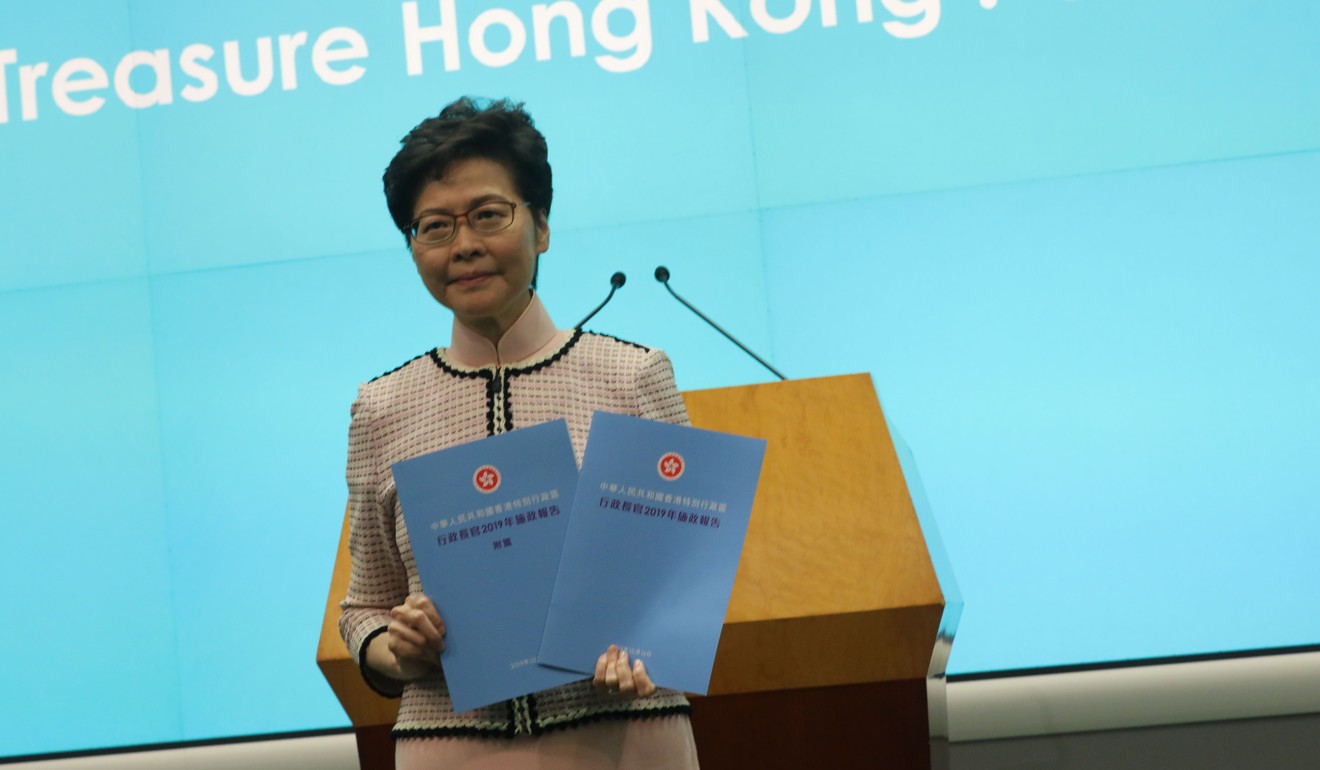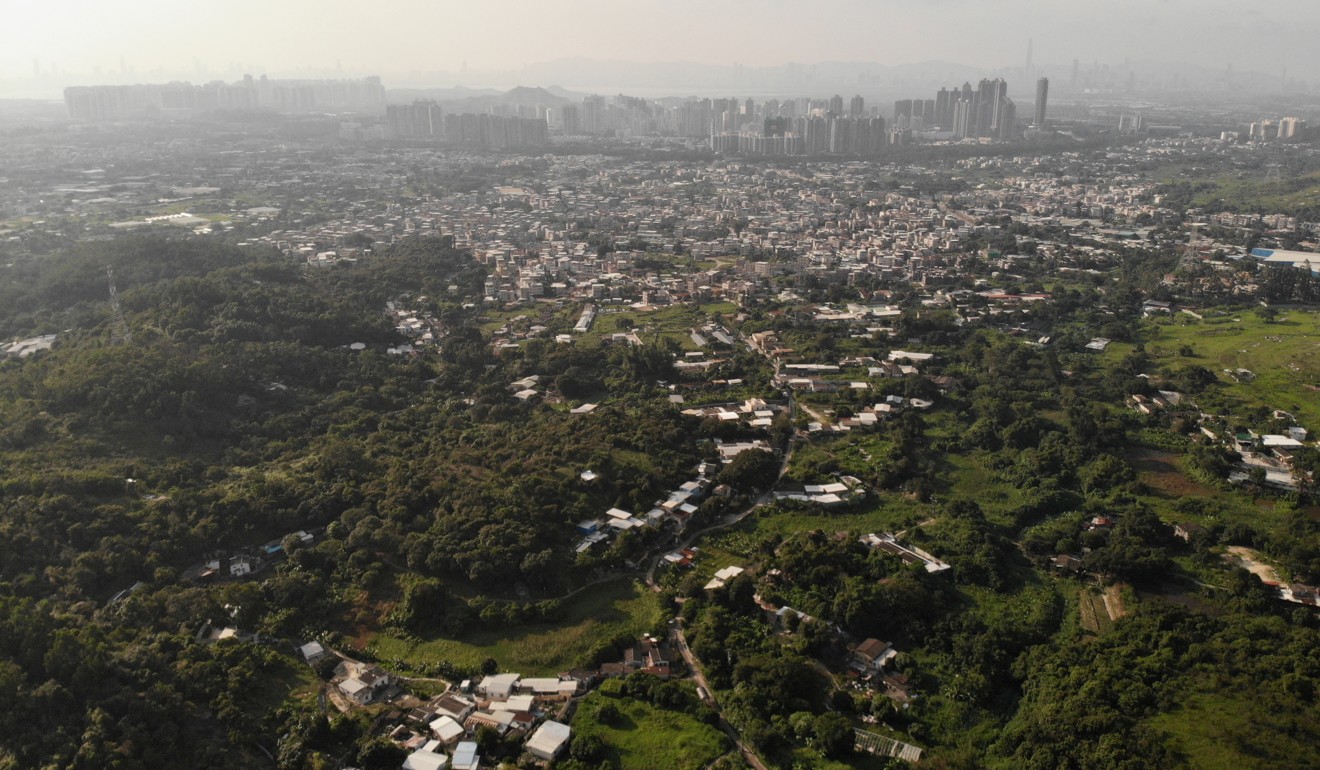
Exclusive | Hong Kong finance chief Paul Chan touts market resilience on US tour and says capital outflows insignificant, amid protest turmoil at home
- Paul Chan speaks exclusively to the SCMP in Washington on a range of issues facing the city at a critical time
- He says most indicators – including the stock market and bank liquidity – have held firm, and downplays overall fund outflows
In discussions with think tanks and other officials during the Asia-Pacific Economic Cooperation’s meeting of finance ministers in Santiago, Chile, as well as the annual meetings of the International Monetary Fund and the World Bank in Washington, Financial Secretary Paul Chan Mo-po said most indicators had held firm, and downplayed overall fund outflows.
“The financial stability in Hong Kong remains intact,” Chan said in an exclusive interview in Washington. “The exchange rate remains within the pegged range and is very stable ... The banking sector is very resilient and ample of liquidity. So financial stability of Hong Kong over the past few months has been maintained very well.
“If you look at our stock market, if you look at our banking system, and look at the fund flows, one may not realise that we have been going through some very tough times,” Chan said.
“In August total deposits increased but Hong Kong dollar deposits decreased by about 1.6 per cent, but it came back in September,” Chan said. “Some of this came back in September, so in that sense although there might be money floating out it’s not significant.”
Chan said the government hoped its efforts to restore calm could bear fruit before the city’s scheduled district council elections on November 24.
Police treatment of children arrested at Hong Kong protests raises concern
“We have been keeping in a listening mode instead of being defensive,” Chan said, adding that Lam “has made quite clear that we should focus our priorities on economic development and addressing social issues, improving people’s livelihood so that there will be less controversy, less confrontation and if we are able to make progress on that front, perhaps we can have a more conducive environment for discussion about political reform”.

But he added that it would be “inappropriate” to discuss policy mistakes that Hong Kong’s government may have made since the 2014 Occupy movement, a 79-day period of popular unrest that called for electoral reforms. He conceded only that the now-withdrawn extradition bill, which brought hundreds of thousands onto Hong Kong’s streets starting in June, was “mishandled”.
Social and political re-engineering takes a long time to take effect and the political crisis is right now
In the meantime, Chan will push ahead with a plan to put housing projects on parcels of private land in districts including Fanling and Yuen Long, where public housing will account for about 60 per cent of flats. Some of these projects, encompassing more than 100 hectares of land, would take up to a decade to complete.
The Hong Kong government will also ensure home ownership will be easier for the city’s young professionals, Chan said.
“We’ve asked the Hong Kong Mortgage Corporation to provide mortgage insurance for these young professionals, this middle-income class, by relaxing the mortgage insurance so that when people buy, for example, properties up to HK$8 million, they can get 90 per cent mortgage insurance,” he said.

For residential properties between HK$8 million and HK$10 million, applicants would be able to get financing for 80 per cent of the mortgage.
Chan also said a third package of relief measures for Hong Kong businesses hurt by the unrest would be announced this week, following two earlier packages amounting to more than HK$20 billion. The next package is under discussion with representatives of local industries including logistics, tourism, retail and restaurants, he added, declining to give further details.
Aviation body IATA urges Hong Kong to help airlines hit hard by protest crisis
Asked whether the government was considering other measures to address wealth inequality in Hong Kong, such as a resumption of the estate duty, an inheritance tax that was ended about 10 years ago, Chan said this would be difficult.
Such a move, he said, would undermine Hong Kong’s wealth management industry, which provides too many local jobs.
However, consideration of a government sales tax “could not be ruled out”, adding that “the timing of such a discussion is yet to be decided”.
“It would help a lot if the radicals made a strategic retreat but it seems they would rather fight than win.”
It would help a lot if the radicals made a strategic retreat but it seems they would rather fight than win
Rising social and economic frustration have been evident for a long time, but the Chinese and Hong Kong governments largely ignored the underlying problems fuelling the current crisis, said Richard Bush, a senior fellow at the Brookings Institution and author of Hong Kong in the Shadow of China: Living with the Leviathan.
“Social and political re-engineering takes a long time to take effect and the political crisis is right now,” Bush said, adding that the Hong Kong government would need to enact political reform at the same time as economic and social reform.
It also needs to convince residents it is serious about upending the status quo and clipping the wings of Hong Kong’s tycoons with their inordinate grip on the city’s land, wealth and the economy, he said.
Taiwan rejects Hong Kong murder suspect’s surrender offer
While addressing wealth inequality with an inheritance tax, sales tax or higher corporate tax rates might affect particular industries or risk blunting Hong Kong’s economic competitiveness, these can be finessed, he added.
“I suppose I feel [Chan’s] pain,” Bush said. “But Hong Kong has a lot of smart people and I bet if they put their minds to it, they could come up with ways to generate more revenue that get around some of these side consequences.
“It would help a lot if the radicals made a strategic retreat but it seems they would rather fight than win.”

Addressing concerns that Beijing might bring in forces from the mainland to end the current pro-democracy movement, Chan said: “We don’t think the central government would like to do that.”
“I think we would be able to handle the current social incidents by ourselves,” he added. “We will continue to work hard to find solutions.”


